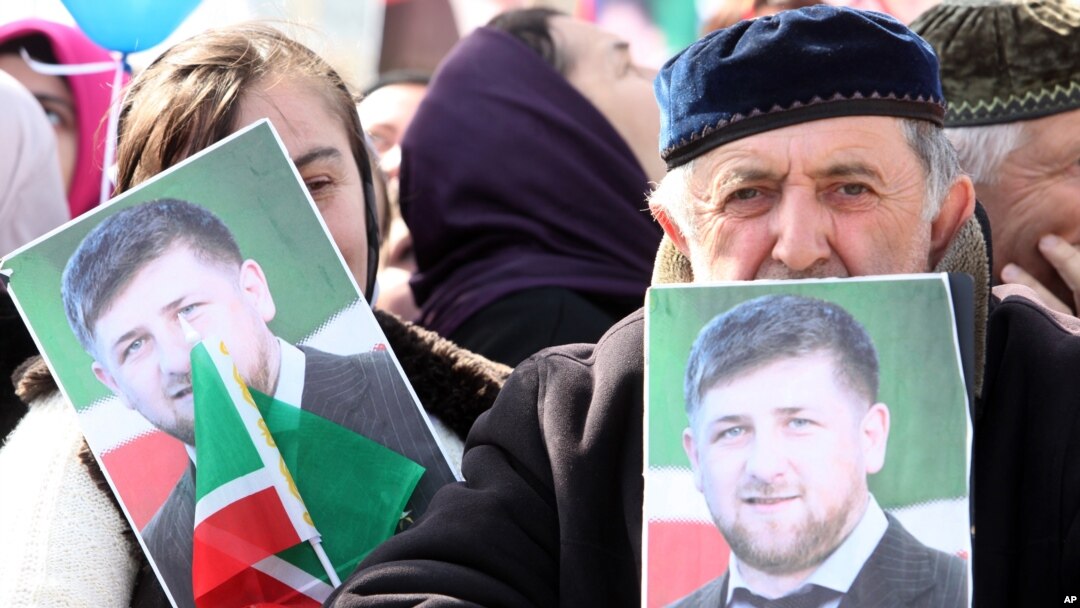Chechnya, one of the republics in Russia’s North Caucasus region, is increasingly separating itself from the country’s legal framework, human rights activists say.
Russian media reported last weekend that Chechen security forces had surrounded the village of Kenkhi in an effort to find one of its residents, Ramazan Dzhalaldinov, who in April had posted a video addressed to Russian President Vladimir Putin accusing local authorities of embezzling funds and extorting bribes.
Last Thursday, unidentified persons in camouflage uniforms and masks burned down Dzhalaldinov’s house. Dzhalaldinov has reportedly fled Chechnya for the neighboring republic of Dagestan after receiving anonymous death threats, and has been joined there by his wife and children.
Chechen ruler Ramzan Kadyrov denied Dzhalaldinov’s home was deliberately burned down, and Kadyrov's spokesman, Alvi Karimov, dismissed reports that Kenkhi had been blockaded as “deliberate misinformation and outright lies.”
However, allegations of lawlessness and violence on the part of the Chechen authorities are far from isolated. Ekaterina Sokiryanskaya, a Caucasus expert with the International Crisis Group and member of the board of the Memorial human rights group, said Chechnya had moved “outside of Russia’s legal space.”
"It's simply carefully hidden, which misleads uninformed people," she told VOA’s Russian service. “An insane atmosphere of fear reigns in Chechnya. People are persecuted for any dissent. For delivering any impartial information to the outside world, they are subjected to the most severe reprisals, including eviction from their homes, torture, criminal cases [launched] under false pretenses, having narcotics planted on them and so forth."
Families penalized
In addition, the Chechen authorities are employing collective punishment, targeting not only individuals but also their closest relatives, she said.
"Therefore, information from the republic is extremely scarce," Sokiryanskaya said. Still, she said, reports of human rights abuses are increasing because Kadyrov “is behaving more and more blatantly and openly, without any regard for the federal government.”
Sokiryanskaya said the fact that Putin reappointed Kadyrov as Chechnya’s governor in March has given the Chechen ruler “a new carte blanche” and convinced him that “he still has the full support of the Kremlin."

FILE - Norwegian reporter Oystein Windstad, one of a group of journalists and activists attacked by assailants near Chechnya, leaves a hospital in Ordzhonikidzevskaya, Ingushetia province, March 11, 2016. The journalists were investigating human rights abuses in Russia's North Caucasus when they were waylaid by cars full of masked men.
Igor Kalyapin, the head of the Committee to Prevent Torture, a Russian NGO, told VOA that Chechnya separated itself from Russia’s legal framework long ago.
"It did not happen yesterday, so this in itself is not a great revelation,” he said. “The worst thing is that this trend is worsening every month, if not every day. It is becoming more and more noticeable.”
According to Kalyapin, Chechnya has moved away from Russia in both the legal realm and in terms of administrative control. So while Kremlin spokesman Dmitry Peskov has called for "an immediate law enforcement response” to the burning down of Dzhalaldinov’s house, Kalyapin said he strongly doubted an objective investigation was possible in Chechnya.
"I believe exactly the opposite," he said. “I have no reason to believe that it is possible to conduct an unbiased investigation in the Chechen Republic. All of our work in Chechnya suggests that it is impossible. It used to be hard, and starting sometime in 2005 it became impossible.”
Last March, during a visit to the Chechen capital, Grozny, Kalyapin was attacked by a group of unidentified assailants who punched and kicked him and pelted him with eggs, flour and an antiseptic liquid. Several weeks earlier, two of Kalyapin’s staffers and two Western journalists were hospitalized after a group of masked men armed with knives and clubs attacked them as they tried to enter Chechnya from the neighboring region of Ingushetia.


